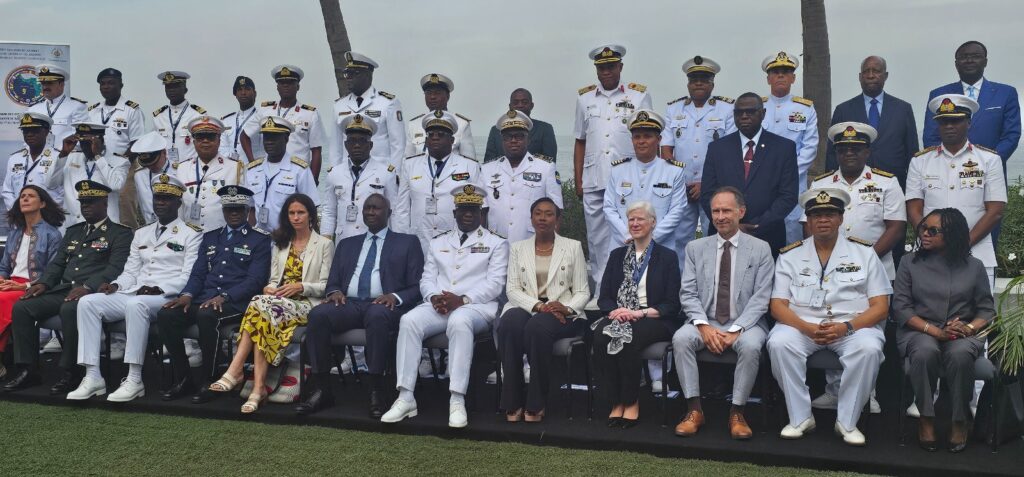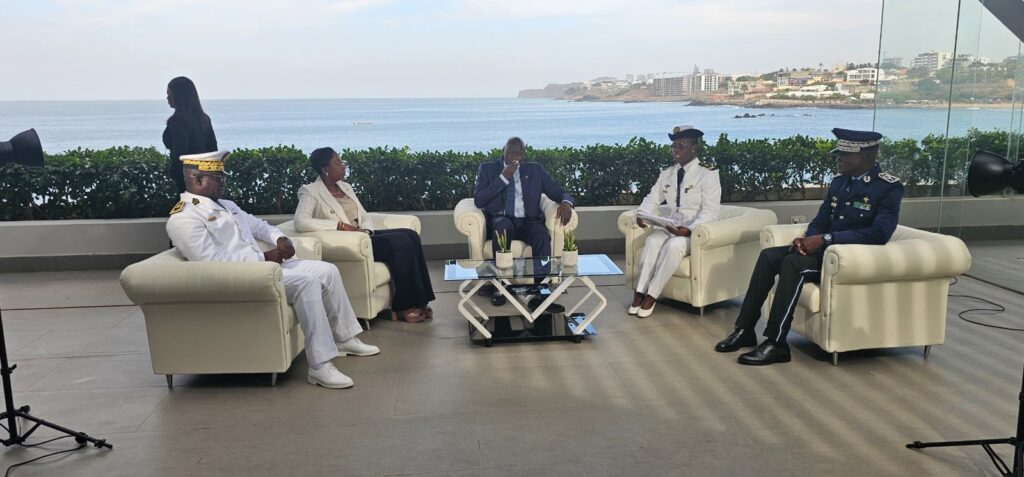ECOWAS Pivots Maritime Security Agenda at Gulf of Guinea Naval Chiefs Summit in Dakar.
By Raymond Enoch
The Economic Community of West African States (ECOWAS) has stepped up its leadership role on maritime security as it co-chaired the 9th Symposium of Chiefs of Naval Staff and Coast Guard Commanders of the Gulf of Guinea, held in Dakar, Senegal, from November 18 to 20, 2025.

H.E. Ms. Damtien Tchintchibidja, Vice-President of the ECOWAS Commission, co-presided over the opening ceremony alongside Senegal’s Minister of Armed Forces, General Birame Diop, in a gathering that brought together top naval and coast guard chiefs, regional security experts and international partners.
From piracy and illegal fishing to oil theft and drug trafficking, the Gulf of Guinea has long been at the centre of complex maritime threats. In Dakar, however, the tone was one of cautious optimism: a recognition that while the challenges remain serious, regional cooperation, information-sharing and joint operations are gradually reshaping the security landscape.

Tchintchibidja underscored the Gulf of Guinea’s dual identity as both a strategic economic corridor and a fragile security hotspot. She stressed that the maritime domain is critical not only to ECOWAS Member States, but to global trade, given the region’s oil production and its role as a major shipping route for imports and exports. Protecting these waters, she argued, is no longer a narrow security issue but a prerequisite for economic stability, energy security and sustainable development across West and Central Africa.
At the heart of ECOWAS’ intervention is support to Member States through early warning and coordinated response tools. The Vice-President highlighted the role of ECOWARN, the ECOWAS early warning system, which is increasingly leveraged to track and analyse risks related to maritime security, including piracy, smuggling, trafficking and other criminal activities that directly impact coastal communities and offshore infrastructure. By feeding alerts and trends to national authorities, ECOWARN is designed to shift the region from reactive crisis management to proactive risk prevention.

Yet the symposium went beyond institutional messaging. For naval chiefs and coast guard commanders, Dakar provided a platform to scrutinise what is working, what is not, and where capacities need to be reinforced. Participants examined how to improve interoperability between navies, strengthen legal frameworks for arrest and prosecution of offenders at sea, and close loopholes exploited by transnational criminal networks.
While ECOWAS reaffirmed its commitment to backing Member States with political support, coordination and technical tools, national authorities were also reminded of their responsibility to invest in maritime governance—from equipping fleets and training personnel to empowering coastal communities that often serve as both victims and inadvertent facilitators of illegal activities.
The Dakar symposium thus served as a barometer of the region’s evolving security posture: a balance between acknowledging persistent vulnerabilities and consolidating gains made through joint patrols, shared maritime domain awareness and increased collaboration with international partners.
As proceedings continue through November 20, expectations are high that the 9th edition of the Gulf of Guinea naval and coast guard summit will not only reaffirm existing commitments, but also set clearer, measurable targets for securing one of the world’s most strategically vital, yet persistently threatened, maritime corridors.










